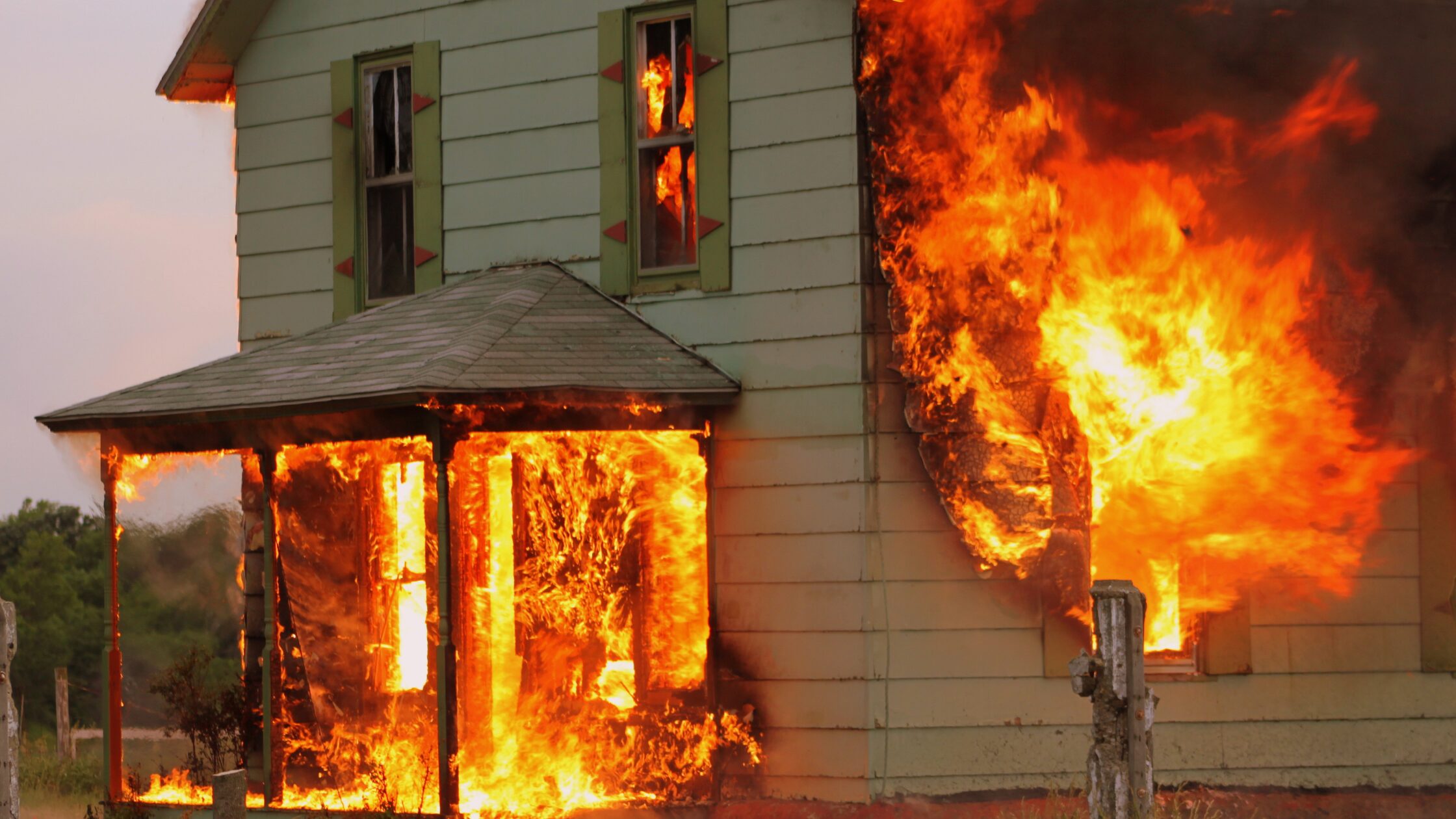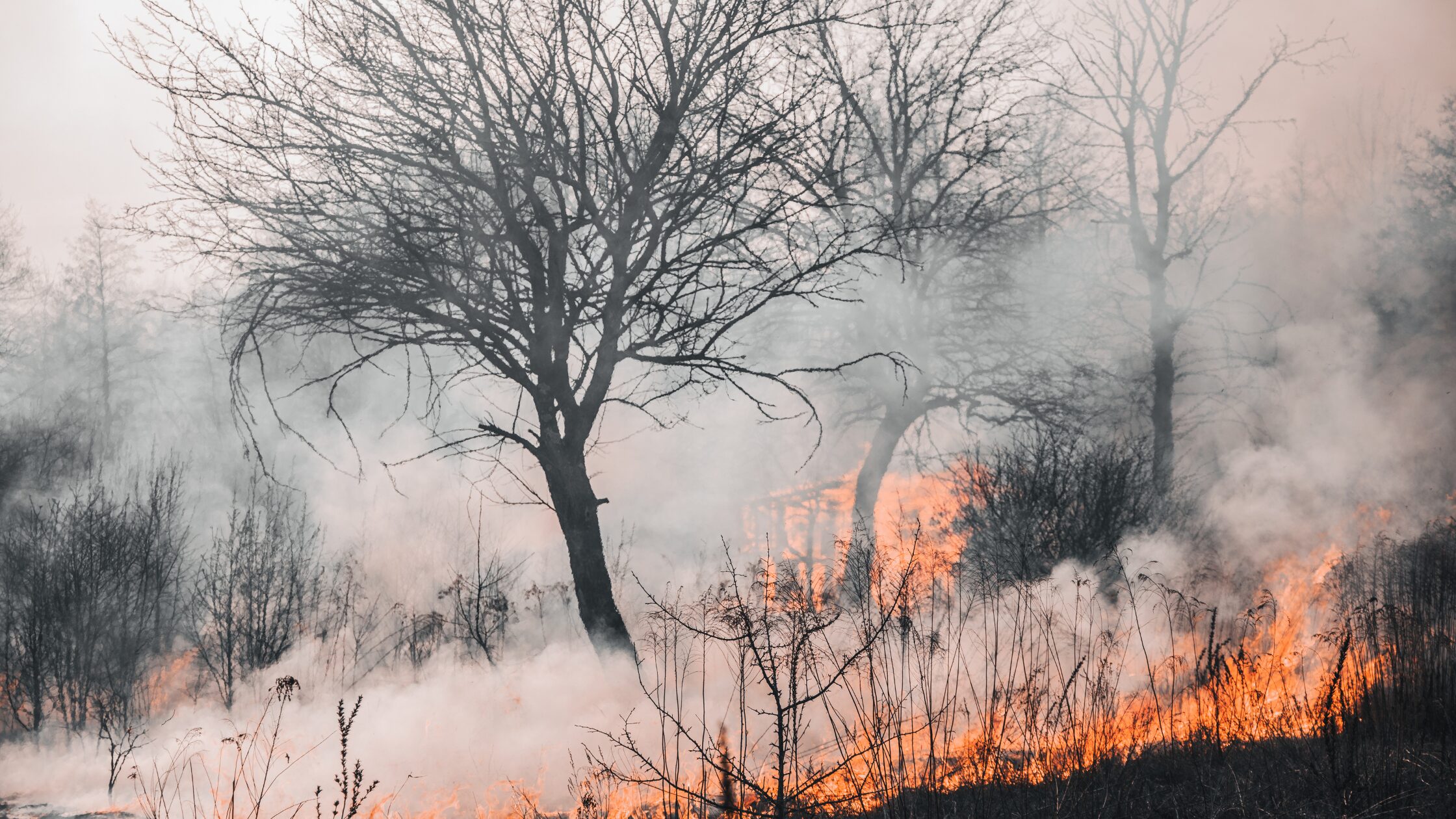Eaton Fires 2025: Overview

The Eaton Fire: One of Los Angeles County’s Most Devastating Wildfires
The Eaton Fire ignited on January 7, 2025, near Altadena Drive and Midwick Drive in Eaton Canyon, rapidly spreading due to extreme Santa Ana winds exceeding 100 mph. Over 24 days, the wildfire burned approximately 14,000 acres, destroyed more than 9,400 structures, and resulted in 17 confirmed fatalities. Tens of thousands of residents were forced to evacuate, and insured losses have been estimated between $28 billion and $35 billion.
What Caused the Eaton Fire?
While the official cause of the Eaton Fire remains under investigation, Southern California Edison (SCE) is suspected of playing a role. Eyewitness accounts reported flames near SCE transmission towers, and evidence suggests that SCE was conducting wind monitoring but did not de-energize power lines despite red flag warnings of hurricane-force wind gusts (NBC Los Angeles).
California has seen a growing number of utility-caused wildfires, with previous cases such as the 2018 Camp Fire and 2017 Thomas Fire resulting in massive legal action against PG&E and other power companies. Similar lawsuits have already been filed against SCE for its potential negligence in preventing the Eaton Fire (Reuters). The official investigation could take 12 to 18 months, but legal actions are moving forward quickly.
Impact of the Eaton Fire
The Eaton Fire caused catastrophic damage, impacting thousands of residents across Altadena, Pasadena, Sierra Madre, and nearby communities.
- 17 lives lost
- More than 9,400 structures destroyed
- Over 1,000 additional buildings damaged
- Tens of thousands of residents evacuated
- Estimated insured losses between $28 billion and $35 billion
Beyond immediate destruction, the fire has led to secondary environmental hazards, including toxic debris exposure, contaminated water supplies, and ongoing mudslide risks in burn-scarred areas (CBS News).
Legal Action Against Southern California Edison (SCE)
Lawsuits against SCE were filed shortly after the fire was contained.
- January 16, 2025 – The first wrongful death and property damage lawsuits were filed against SCE.
- March 5, 2025 – Los Angeles County and the City of Pasadena sued SCE, alleging that their failure to maintain electrical infrastructure and negligence in wildfire prevention contributed to the disaster (KTVU).
- March 12, 2025 – Additional lawsuits were filed, including families of victims seeking compensation for wrongful death and economic losses.
If official investigations confirm that SCE’s failure to de-energize power lines caused the fire, the company could face billions of dollars in legal liability, similar to previous wildfire lawsuits in California.
Health Risks from the Eaton Fire
Wildfire smoke contains fine particulate matter (PM2.5), toxic chemicals, and heavy metals from burned homes, vehicles, and vegetation. Residents, first responders, and cleanup crews exposed to these airborne contaminants face serious health risks, including respiratory diseases, cardiovascular complications, and long-term neurological effects.
Environmental testing in fire-damaged areas has found elevated levels of lead, arsenic, and other hazardous substances, increasing concerns about contaminated air, soil, and water. Many returning residents have reported persistent coughing, breathing difficulties, fatigue, and headaches as a result of prolonged smoke exposure.
As investigations continue, state and local health officials are monitoring the impact of the fire on public health and environmental safety. Those affected may have legal options to seek compensation for medical expenses, property losses, and long-term health effects.
NAVIGATE THIS PAGE
Table of Contents
Impact and Legal Aftermath of the Eaton Fire
Types of Damage and Losses from the Eaton Fire
The Eaton Fire caused widespread destruction, leading to various types of losses, including property damage, personal injuries, environmental contamination, and financial hardship. Understanding the full scope of the damage can help victims seek appropriate recovery and legal action.
Health and Environmental Consequences of the Eaton Fire
Beyond physical destruction, the Eaton Fire exposed residents and first responders to toxic smoke, airborne debris, and hazardous chemicals, which may have long-term health implications. Exposure to wildfire pollutants can lead to respiratory issues, cardiovascular diseases, and environmental contamination affecting air and water quality.
Legal Claims and Compensation for Eaton Fire Victims
Victims of the Eaton Fire may be eligible to file wrongful death, personal injury, property damage, or insurance claims to recover financial compensation. Lawsuits have already been filed against Southern California Edison (SCE) for alleged negligence in preventing the fire, and additional legal actions may follow as investigations continue.
Health and Property Risks After the Eaton Fire

The Eaton Fire caused extensive property destruction and environmental hazards, leaving thousands of homes and businesses in ruins. In addition to burned structures, smoke damage, and hazardous debris, many properties were left uninhabitable due to toxic exposure, structural instability, and water contamination from firefighting efforts. Even homes that survived the flames may require extensive smoke remediation and reconstruction, adding to the financial burden on displaced residents.
Beyond property loss, exposure to wildfire smoke, airborne debris, and hazardous chemicals poses serious health risks. Early symptoms of smoke inhalation may go unnoticed, but continued exposure can lead to persistent coughing, shortness of breath, chest tightness, and respiratory distress. Individuals with preexisting conditions, such as asthma or COPD, are at a heightened risk of complications.
Environmental testing in the burn zone has detected elevated levels of lead, arsenic, and other contaminants, raising concerns about long-term exposure risks for returning residents. Prolonged inhalation of wildfire-related toxins has also been linked to lung damage, chronic bronchitis, and increased cancer risk.
If you have lost your home, suffered property damage, or experienced health issues related to the Eaton Fire, legal options may be available to help you recover compensation for rebuilding costs, lost income, medical expenses, and other damages. Seeking early legal and medical guidance can be crucial in protecting your rights and financial future.
Rebuilding and Recovery Efforts
The aftermath of the Eaton Fire has led to significant legal, environmental, and financial challenges for affected residents.
- Ongoing insurance disputes – Many residents are still waiting for insurance payouts to rebuild their homes.
- Debris removal and environmental remediation – Toxic ash and hazardous materials must be cleared before rebuilding can begin.
- Housing crisis – The fire left thousands displaced, with rental shortages and predatory investors targeting fire victims for below-market home purchases.
If you were affected by the Eaton Fire, resources are available to help with recovery, legal claims, and financial assistance.
For official updates, assistance programs, and legal resources, visit EatonFireTaskForce.com.
Eaton Fire Legal Assistance – Lawsuits & Your Rights
If you or a loved one suffered property loss, injuries, displacement, or other damages due to the Eaton Fire, you may have legal options to seek compensation. Whether your losses stem from fire damage, smoke exposure, insurance disputes, or wrongful death, legal action may be necessary to protect your rights and recover financial relief.
Many victims of the Eaton Fire may not initially know the full extent of their losses or who is responsible. However, through detailed investigations, property assessments, and legal consultations, attorneys can help determine liability and whether Southern California Edison (SCE) or other parties should be held accountable for the destruction.
If you are unsure about your eligibility to file a claim, legal professionals can assist by reviewing your case, gathering evidence, and consulting with experts to establish the cause and impact of your losses. In some cases, it may be necessary to enlist neighbors, first responders, or insurance adjusters to help document fire-related damages.
All Eaton Fire cases are handled on a contingency fee basis, meaning you pay no attorney fees or case expenses unless a settlement or financial recovery is obtained on your behalf.
Contact a Eaton Fire Injury Lawyer – Free Case Review
If you or a loved one has suffered property loss, injuries, or financial hardship due to the Eaton Fire, you have the right to seek justice. The destruction caused by this wildfire has left many families facing uncertain futures, insurance battles, and unanswered questions about accountability. You don’t have to face this alone—legal options may be available to help you recover the compensation you deserve.
Take the first step by contacting us for a free consultation. Our experienced legal team is here to support you through every stage of the process, ensuring that those responsible are held accountable and that you receive the financial relief needed to rebuild your life.
Let Us Help You
Request Your FREE CONSULTATION Today!
Call (800) 745-4223 or fill out the form below to contact our team.

